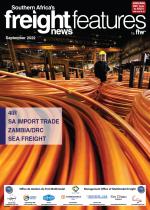South Africa’s move to localisation to kickstart industrialisation and stimulate economic growth could set the country on a tumultuous course with serious consequences.As part of South Africa’s big localisation push, it has announced plans to increase the number of products under the 100% local content category to support SMMEs in the local manufacturing sector.What does this mean practically? Fewer imports. The Ramaphosa-led government maintains that by bringing in fewer international products local manufacturers will be able to produce more.Experts, however, maintain that localisation, as it is currently being presented, will not lead to industrialisation. Economist Francois Fouche from the Growth Diagnostics and the Centre for African Management and Markets at GIBS says South Africa should not be limiting its imports. “Artificially forcing down imports is a synthetic way of thinking about trade and could have severe unintended consequences,” he told Freight News. “We should by no means be thinking about limiting imports, especially considering that South Africa imports a large portion of intermediary goods. These products are vital in capacitating local industries to produce new end-products. Using local labour and local factories, these imported goods are creating employment.”He said while localisation on paper sounded like a good idea, when put to the test it came short every time.“In the current format as presented by the dtic, it is taking us in the opposite direction of where we should be heading. Firstly, South Africa is not manufacturing or producing anything new. Instead, we have opted to introduce an array of import tariffs and duties to make imports more expensive.”Protecting local manufacturers with higher tariffs will not lead to higher production but rather make those protected firms less innovative and, over time, less competitive. This is firmly supported by businesses across South Africa as evidenced by research commissioned by Business Unity South Africa (Busa) and Business Leadership South Africa (BLSA).Most businesses don’t mind opting for local products, but there are conditions.“Availability, cost and quality come into play,” explains Fouche. “If the right product is available at the right price and quality then local is lekker, but if it is forced upon industry under the wrong conditions it is simply not sustainable. All this will achieve is to upset the balance between price, quality and capacity – and the country at large will pay the price.”Economists agree that government should not be basing its industrialisation programme on protecting what we already have, but rather increase efforts to make its existing industries more competitive for the export market.“Import substitution in a complex economy like South Africa from the top down will have dire consequences. There are already controls in place around who can own businesses and who needs to be employed,” explains Fouche. “Taking this a step further is nothing else than creating a command and control environment. Dictating who we can trade with and what can be traded will have the opposite effect to what is intended. Trying to shrink imports via this approach and through these levels of prescription is not conducive to growth and expansion of the South African economy.”

